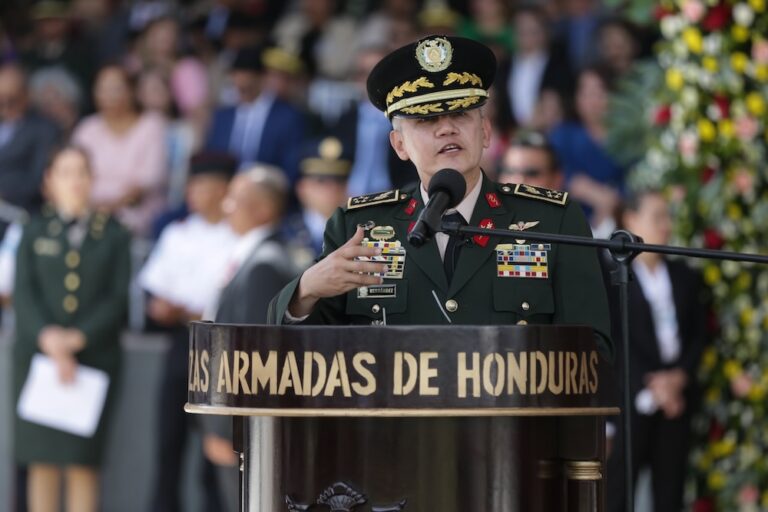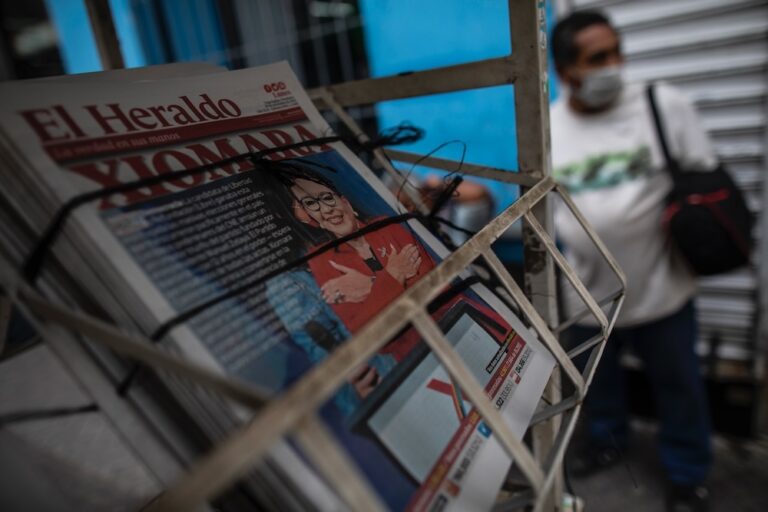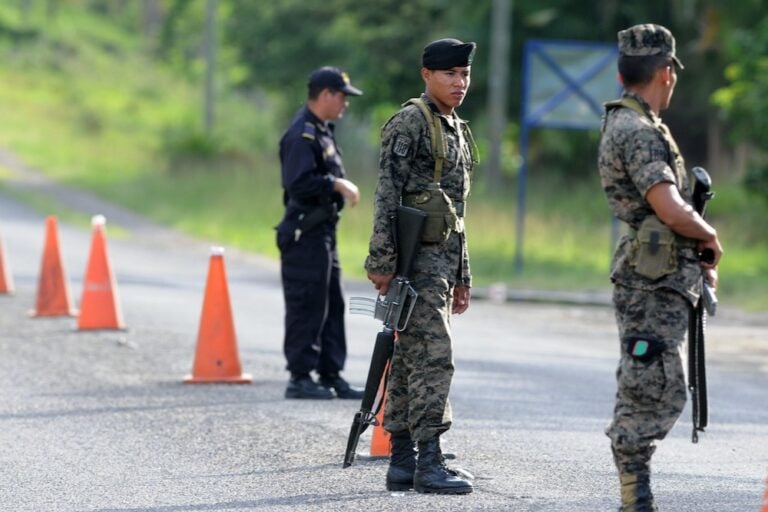(PROBIDAD/IFEX) – Journalist Wendy Guerra, dismissed 24 April 2006 by the owner of Canal 49 television station in Santa Rosa de Copán in western Honduras, has been reinstated in her position after an alert concerning her case was issued nationally and internationally. The journalist had been dismissed due to political pressures from the local government. […]
(PROBIDAD/IFEX) – Journalist Wendy Guerra, dismissed 24 April 2006 by the owner of Canal 49 television station in Santa Rosa de Copán in western Honduras, has been reinstated in her position after an alert concerning her case was issued nationally and internationally. The journalist had been dismissed due to political pressures from the local government.
Guerra told the Committee for Free Expression (Comité por la Libre Expresión, C-Libre) that she was rehired on 3 May, World Press Freedom Day, after the company apologised, and that “we reached an agreement on my work that was acceptable to both parties.”
According to Guerra, the alert issued on her case generated not only protest actions at the community, national and international levels, but also “gestures of solidarity that I never imagined; there were even people willing to organise protest marches against the station.”
“I’m very grateful for the support I received, the alerts disseminated by C-Libre, Reporters Without Borders and PROBIDAD, as well as the support from my fellow journalists and Santa Rosa de Copán’s citizens. Canal 49 managers apologised and claimed it had been a ‘misunderstanding’, but in any case, the action [to reinstate her] took place and we’ve agreed on respectful labour and professional relations,” said Guerra.
Station owner Amid Cárdenas, a former congress member, dismissed the journalist in reprisal for her reporting on three municipal councillors’ opposition to the construction of a sports centre for area youth. Guerra based her reporting on records of the municipal council’s sessions, in which three of the 10 councillors voted against the project.
Cárdenas, who belongs to the governing Liberal Party, had told the journalist that her reporting had caused him problems with friends in the party and that, moreover, he didn’t want negative things about “Mel’s” (Honduran President Manuel Zelaya’s) government being said on the station, because “he’s my friend and he won’t give me any more advertising contracts.”
Along with his verbal reproach of the journalist, Cárdenas drafted a note, copied to the three offended councillors, telling her he intended to dismiss her and cancel her programme.
The above provoked a series of complaints and protests, both nationally and internationally, that led to the reinstatement of the journalist.
Guerra’s case, like those of two capital-based journalists, typifies what is known as “covert censorship”, a new manner of threatening and intimidating journalists exercising their profession in Honduras.


